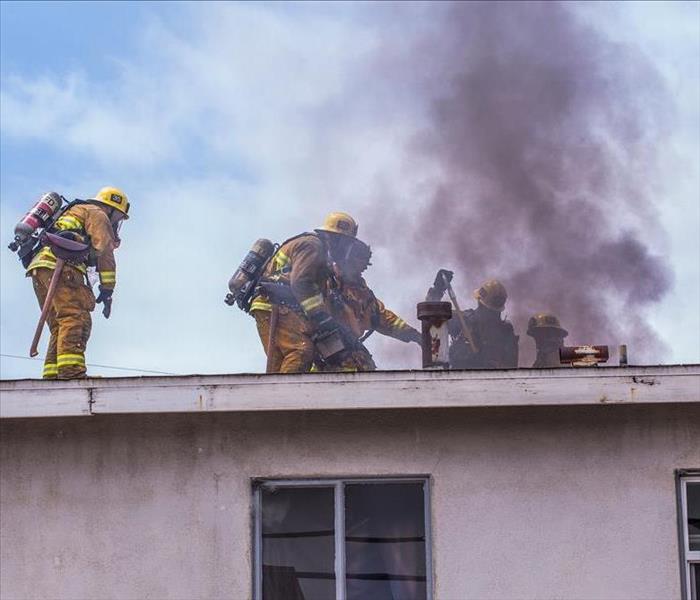Potential Fire Hazards and How To Prevent Them.
10/19/2021 (Permalink)
Potential Fire Hazards and How To Prevent Them.
No one ever believes a fire will start in their home, until it happens to them. Knowing what to expect in advance can help you prepare a plan. While a fire can start anywhere, at any time in your home, below is a list of the top four most common causes of fires and a few safety tips.
- Kitchen Fires: Your kitchen is the number one area in your home where a fire can start. Burning food, cooking with grease, small appliances, water, constant people in and out, or electrical problems are all factors that can cause a fire in your home. Grease fires can get out of control quickly, spreading to other areas of your home before the fire department has arrived. When cooking with grease, always exercise extreme caution. Keep a lid, baking soda, or fire extinguisher within reach just in case you need to smother a fire quickly. Never leave food unattended while you are cooking.
- Electrical Fires: are the second most common cause of house fire. Old or faulty wiring, broken or outdated breaker boxes, faulty appliances, or the improper use of outlets can cause a fire.
- Portable Heaters and Electric Blankets: can become hazards during the fall and winter seasons. If you are using a portable heater, always leave three feet of free space around the heater. Never place anything flammable on or near your heater. Whenever you leave the room, always turn it off. Even though modern electric blankets are considered generally safe, there are a few steps you can take to reduce your risk of a fire. Never plug electric blankets or heaters into power strips; always plug them into the outlet. Never use an electric blanket that has signs of excessive wear, such as tears, scorch marks, frayed cords, or damage temperature control. Avoid using an electric blanket that has wires and attachments that don't fit tightly.
- Smoking: is the fourth leading cause of fires. It is far more dangerous to smoke inside your home than outside. Many items in your home could catch on fire if they touched a lit cigarette or hot ashes. It does not take much for an ember to catch a chair, couch, rug, or curtains on fire. Always make sure you put your cigarette all the way out. Put water on ashes or butts or put cigarettes out in a bucket of sand.
- How Can You Prepare: While you can do everything in your power to prevent a fire in your home, sometimes accidents do happen. In these moments, you and your family's safety is the number one priority. The difference between safety and tragedy is preparation. Take the extra time to prepare yourself and your family now. Create a fire escape plan with your family. Map out at least two exit strategies for each area in your home. Designate a meeting spot that is a safe distance from your home that everyone knows where to meet once they escape. Practice as often as possible. Check your smoke alarms to ensure they are in working order. If your smoke alarms are ten years old or older, replace the entire unit. Install carbon monoxide detectors if you do not already have them in your home.
Don’t feel overwhelmed after a disaster - call SERVPRO of Pickens County at 864-855-3993. We respond immediately to any fire loss in an effort to mitigate the existing damage, prevent further secondary damage, and reduce restoration costs.


 24/7 Emergency Service
24/7 Emergency Service
